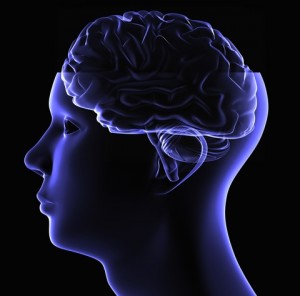Getting Help for Steroid Abuse

Table of Contents
Sculpting a body that’s lean, strong and powerful takes time. Athletes must spend hours at the gym, lifting weights in repetitive sets that can take hours to complete, and they must also watch every little calorie they eat and measure the fat content of each meal they prepare. It’s exhausting, and it also might take months for a person to obtain significant benefits. Steroids seem to provide a perfect shortcut, as these substances can load up the body with a synthetic version of male hormones. Muscles plump up, fat melts away and the person feels transformed in no time at all. Those miracle drugs can be incredibly dangerous, however, and some people who abuse these substances need help in order to recover.
Breaking Through Denial
 People who abuse illicit substances like heroin or cocaine may know very little about how the drugs work and how dangerous they might be. These users might know how the drugs make them feel, of course, and they’re certainly acquainted with how much the drugs cost. But they may be blissfully unaware of how the drugs really work once they’ve entered a person’s bloodstream. Users like this can sometimes be persuaded to enter treatment programs when they’re given a few lessons on biology and chemistry. Once they understand how these substances really work and the harm they can cause, they might be less likely to continue to defend the benefits of the drugs they take.
People who abuse illicit substances like heroin or cocaine may know very little about how the drugs work and how dangerous they might be. These users might know how the drugs make them feel, of course, and they’re certainly acquainted with how much the drugs cost. But they may be blissfully unaware of how the drugs really work once they’ve entered a person’s bloodstream. Users like this can sometimes be persuaded to enter treatment programs when they’re given a few lessons on biology and chemistry. Once they understand how these substances really work and the harm they can cause, they might be less likely to continue to defend the benefits of the drugs they take.
Steroid users, on the other hard, may claim that they know almost everything there is to know about the substances they take. These users may have read online articles about their drugs, and they may have looked for specific types of steroids to use in specific combinations and formulations. As a result, these users might not be convinced that their drugs are unsafe, or that other people know things about their drugs that they may not have considered. For example, according to a study quoted in an article in Advances in Psychiatric Treatment, 40 percent of people who used steroids trusted information they received from their drug dealers as least as much as the information they got from their doctors. These users may seem hard to reach, as they may not be frightened about their use of drugs or even willing to discuss the matter with those they don’t respect.
Families may find it hard to break through this wall of denial, but therapists have a variety of tools they can use in order to help their clients. For example, some therapists focus on the personality changes and lifestyle changes steroid users experience. These therapists may ask their clients to describe how their lives were before they started using drugs, and how their lives are now. They may ask their clients to outline how their feelings of anger and rage make them more useful members of society. They may ask their clients to consider whether gaining control over their emotions might be helpful. These talks can be difficult for people to endure, but the conversations can get them thinking about their steroid use, and they might be compelled to enter treatment programs after just a few sessions like this.
Allowing the Body to Rest
 As an article in the BMJ Evidence Centre makes clear, anabolic steroids don’t cause severe physical distress during the withdrawal process, so people can stop using them immediately, without tapering their doses over a long period of time. Unlike other drugs of abuse, which can sometimes cause life-threatening complications when they’re removed quickly, steroids don’t seem to cause this same kind of physical damage, so less caution is needed. However, people who abuse these drugs may have mental health concerns that need close monitoring during the withdrawal process. Some of those mental health concerns arise due to the damage steroids can cause.
As an article in the BMJ Evidence Centre makes clear, anabolic steroids don’t cause severe physical distress during the withdrawal process, so people can stop using them immediately, without tapering their doses over a long period of time. Unlike other drugs of abuse, which can sometimes cause life-threatening complications when they’re removed quickly, steroids don’t seem to cause this same kind of physical damage, so less caution is needed. However, people who abuse these drugs may have mental health concerns that need close monitoring during the withdrawal process. Some of those mental health concerns arise due to the damage steroids can cause.
A body on steroids goes through a series of complex and persistent chemical changes. In time, this body might simply shut down the production of hormones, since so many of these hormones are already circulating in the bloodstream. A person who takes steroids may not detect the moment at which the body’s processes have been altered, but when the drugs are gone, the damage becomes clear. Without access to hormones, the rippling muscles can fade away and the fat cells may begin to proliferate. People who abuse steroids are often incredibly sensitive to the way their bodies look and react, and a lack of muscle tone and strength could be just devastating to them as a result.
- Depressed
- Worthless
- Fat
- Suicidal
Medications can sometimes be helpful for people who feel so upset and distressed that they simply don’t feel as though life is worth living. However, antidepressants can also take several days or even several weeks to kick in. For this reason, medications aren’t always part of the treatment protocol for people going through detox. Instead, a safe environment with supportive therapists might be provided instead, and the person might be asked to transition into therapy as quickly as possible, in order to deal with the damage and learn new habits.
Handling Body Image
The depression that comes with a changing body image can sometimes be ameliorated with therapy techniques used for people who have eating disorders. In therapy sessions, people begin to separate the way they look from the value they add to their communities and the people they love. Often, this involves listening to the hurtful inner voice that tells people they are fat and therefore worthless. Each damaging thought like this is acknowledged, tested and then replaced if it’s found to be worthless. In time, people can shut down this hateful, hurtful voice and learn that their real contributions come from their actions, not their appearance.
People who abuse steroids may also benefit from therapy that helps them to develop healthy workout routines. Instead of pressing their bodies with chemicals, they might learn about the endorphin rush that comes with a good run. Instead of focusing on muscle size, they might learn to feel pride in the way their bodies perform while they lift a reasonable amount of weight. They might also need to work with therapists to revise their exercise habits, so they won’t relapse to steroid abuse when they return home. For example, these clients may need to:
- Work out at home, instead of using a mirrored gym.
- Steer clear of competitive events.
- Avoid muscle-bound magazines or websites.
- Refuse to measure their weight or track their muscle size.
- Find workout partners who don’t abuse drugs.
These relapse prevention strategies can help people to focus on their fitness goals, without encouraging them to do yet more damage to their bodies in the process.
Combatting Mental Changes
 Symptoms of depression and grief can fade when people who abuse steroids see their bodies begin to heal and they revise their thought patterns concerning image and strength. However, some of the mental health challenges associated with steroid abuse have little to do with body image, and these issues may need a different form of therapy.
Symptoms of depression and grief can fade when people who abuse steroids see their bodies begin to heal and they revise their thought patterns concerning image and strength. However, some of the mental health challenges associated with steroid abuse have little to do with body image, and these issues may need a different form of therapy.
In a study in the journal Drug and Alcohol Dependence, researchers suggest that people who abuse steroids tend to have an inability to control their impulses and make good decisions about their futures. They may be living in the moment, prey to any thought that seems to come into their minds, and they may not be able to keep their addictions in check as a result. Additionally, steroid abuse can also erode a person’s ability to keep emotions in check, and people who abuse these drugs may fly into rages at a moment’s notice. Pushing them to change their thought patterns in therapy could be difficult, as a result, as people like this might just quit their treatment programs or blame their therapists for their difficulties.
Treatment professionals may respond to this risk by moving slowly with their steroid abuse clients. They may strive to form a connection before they suggest big changes, and they may allow therapy to progress at a pace the person feels comfortable with. These therapists may also use contingency management techniques in order to keep their clients engaged in therapy. Here, people are given vouchers for prizes each time they keep an appointment or produce a urine sample that’s free of drugs.
The rewards can vary, but common prizes include:
- Money
- Healthful snacks
- Restaurant vouchers
- Clothing store vouchers
These little perks can make the benefits of participating in therapy more immediate, which could work to persuade the impulsive, formerly addicted steroid user to stay in therapy. With each session and each lesson, that person could learn how to keep those disastrous impulses at bay in the future, and in time, no more prizes of any sort might be needed.
Finding Healing
If you or someone you love needs assistance with a steroid abuse issue, we hope you’ll consider Axis. We provide residential care for all sorts of addictions, including addictions to steroids, and we accept same-day admissions. We can even help you with your travel arrangements, if you live far from our treatment center. Please call our toll-free line now to talk with an admissions counselor. All calls are confidential. Please call now to find out more.

